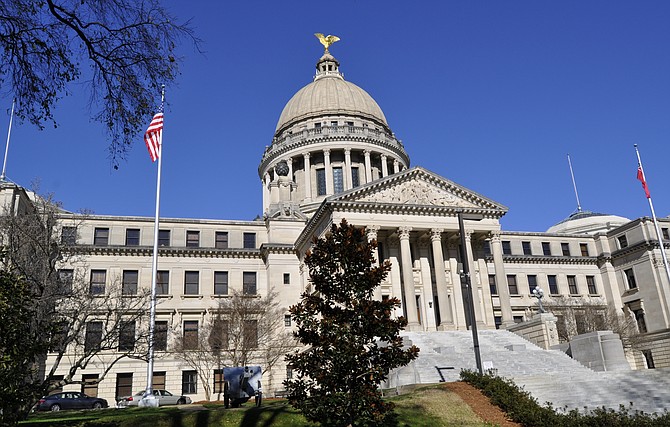Senators sent Senate Bill 2689 to Gov. Phil Bryant on Wednesday. Only Sen. Juan Barnett, D-Heidelberg, voted against the measure. Trip Burns/File Photo
JACKSON, Miss. (AP) — Elected officials in Mississippi would no longer be able to use campaign money to subsidize their lifestyles or build retirement nest eggs under a bill likely to become law.
Senators sent Senate Bill 2689 to Gov. Phil Bryant on Wednesday. Only Sen. Juan Barnett, D-Heidelberg, voted against the measure.
Bryant spokesman Clay Chandler said the governor believed the bill contains "meaningful reforms" and plans to sign it.
The bill would ban lawmakers and other elected officials from spending money for non-campaign purposes such as a mortgage payment, funerals, clothing, automobiles, tuition or undocumented loans.
The proposal came after The Associated Press and The Clarion-Ledger questioned campaign spending in 2016 reports. Some officials took leftover money from accounts when they retired, or spent it on things like cars, clothing and personal travel. All that is legal, as long as officials pay income taxes on money taken for personal use.
Experts say the practice makes campaign contributions perilously close to bribes. Mississippi is one of only five states that still allow elected officials to pocket campaign money for personal use during or after their careers.
Rep. Hank Zuber, R-Ocean Springs, had introduced bills for more than a decade to change spending practices.
"It's been 13 years," he said. "People laughed at me, and they made fun of me, and in some cases became upset with me. I feel vindicated."
A bill that would have imposed limits died in the House last year after some top Republicans questioned it. This year, House Speaker Philip Gunn, R-Clinton, made changes a priority, personally walking the bill through a committee.
"We have worked hard to make this legislation as tight and as clear as possible," Gunn said in a statement Wednesday.
The measure would require officials to itemize credit card purchases of more than $200 instead of listing lump-sum payments.
Officials could still use campaign money to cover campaign and official expenses, including travel to political and association meetings, car rental and accommodations. It also allows lawmakers to pay expenses connected with legislative sessions that are in excess of what is covered by the $140-per-day expense payment they collect.
"The overall rule on this is just common sense," Sen. Sally Doty, R-Brookhaven, told senators. "If it is related to your gaining or holding elected office, it is allowable."
Candidates closing campaign committees would be required to give the money to another political committee or candidate, to a nonprofit group or the state — or to return it to donors.
An AP review found that of 99 elected officials who had left office in previous years, as many as 25 may have pocketed more than $1,000 when they closed campaign accounts. At least five cashed out more than $50,000.
The Ethics Commission would be assigned to enforce the act and could fine violators $1,000, plus an amount equal to misspent campaign money. The measure also shifts from the secretary of state to the Ethics Commission the power to fine or seek legal orders against candidates and committees that don't file campaign finance reports.
The bill would take effect Jan. 1.
Copyright Associated Press. All rights reserved. This material may not be published, broadcast, rewritten, or redistributed.



Comments
Use the comment form below to begin a discussion about this content.
comments powered by Disqus